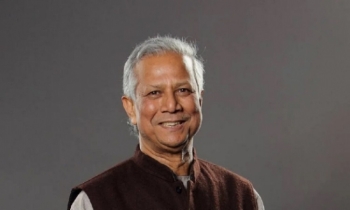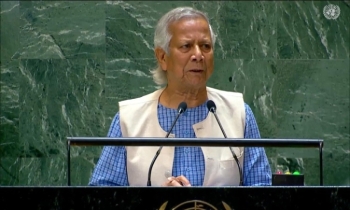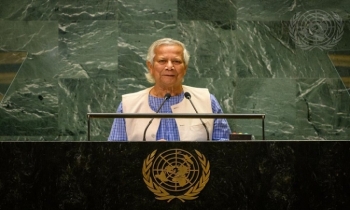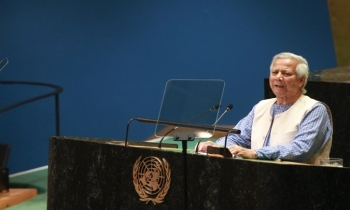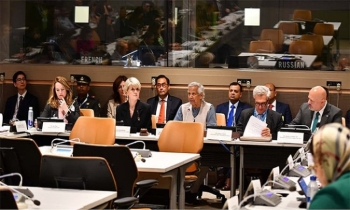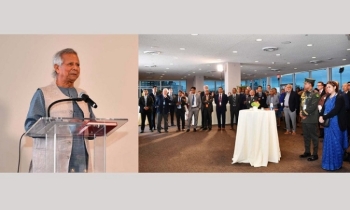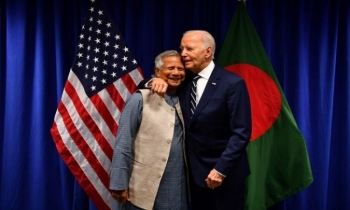TIB criticizes GCF for burdening countries with loans
BI Desk || BusinessInsider

Representational photo
Transparency International Bangladesh (TIB) Executive Director Dr Iftekharuzzaman on Tuesday criticized Green Climate Fund (GCF) for burdening countries like Bangladesh with loans.
He made the remarks at a press conference at TIB's Dhaka office marking the release of the research -"Accessing Green Climate Fund (GCF) for Vulnerable Countries like Bangladesh: Governance Challenges and Way Forward''.
The research is both qualitative and quantitative, and its timeline is January 2023 to May 2024, reports BSS.
Iftekharuzzaman said: "From the beginning, GCF has imposed such conditions that it nearly banned the developing countries from accessing funds. As a result, the countries who were supposed to receive grants, didn't receive adequate amount as expected. Besides, GCF is not abiding by the principles to release funds and does not transfer them in due time."
He said that the country ownership policies are being ignored. Besides, the policies are vague, he said.
Also, GCF provides more funds to international organizations like UNDP, IDB, ADB and EBRD, which is unacceptable and in contradiction to its core mandate, he said.
He added that UNDP's accreditation was renewed despite corruption allegations, which means the mandate for zero-tolerance against corruption has been flouted to support corruption by the GCF.
TIB research has found that Green Climate Fund (GCF) prioritizes international organizations over the climate vulnerable countries in granting funds, which is in contradiction to GCF's own core principles.
It has also failed to collect funds from the developed countries and burdened the climate vulnerable countries with loans instead of giving grants. This shows its failure in the last 12 years in fulfilling its core mandate.
GCF's recognition process is complex and time-consuming, which is making difficult for vulnerable countries like Bangladesh to receive funds directly from GCF.
The GCF is also inclined toward mitigation rather than adaptation, resulting in the less prioritization of climate change related activities in the climate vulnerable countries. In the last eight years, GCF could not achieve 50:50 proportion for adaptation and mitigation or declare any timeline to achieve it.
Research found that despite the demand for USD 215 to 387 billion, GCF provided only USD 5.9 billion for adaption to the developing countries.
In addition, the research observed fund crisis for the climate vulnerable countries and a gradual increase of loans in comparison to grants. According to the Polluters-pay-Principle, developed countries are supposed to provide grant-based climate finance to developing countries.
However, GCF prioritized providing loans to these climate vulnerable countries. Notably, 40.6 per cent of GCF's finance is provided as loans, followed by 41.6 per cent as grants.
The loan recipient countries, who are already financially burdened due to climate change, have been under additional pressure to repay the GCF loans.
Transparency issues surround the rationale behind the NDA selection process. Furthermore, significant time is expended aligning the government body's capabilities and economic metrics with GCF standards.
Despite efforts to accredit four government entities with the GCF since 2018 under the 'country programme', accreditation has not been granted in five years. Conversely, an organization in Bangladesh waited two years for accreditation due to insufficient support from the GCF Secretariat.
Analysis of GCF project financing themes reveals USD 141.8 million (32%) allocated to adaptation projects and USD 256.5 million (58%) to mitigation projects. Bangladesh requires USD 12 billion to address climate change by mid-2025, yet only USD 1.18 billion has been approved from national and international sources, representing 9.9% of the required amount. Additionally, USD 448.8 million has been allocated from readiness and GCF funds, constituting 3.7% of the total required funds.
Notably, Bangladesh received USD 256.4 million (76.9%) for mitigation projects and USD 76.8 million (23.1%) for adaptation projects, with 75% of GCF funds for government organizations in loans and 25% in grants. However, fund disbursement from the GCF to Bangladesh is sluggish, with the first instalment of one project released three years after approval. Only 13.3% of funds for Bangladesh's nine GCF projects have been disbursed.
TIB Adviser of Executive Management Professor Dr. Sumaiya Khair, Director of Research and Policy Muhammad Badiuzzaman and Senior Research Fellow Md. Mahfuzul Haque attended the press conference.
The conference was conducted by TIB Director of Outreach and Communication Mohammad Tauhidul Islam and Research Fellow Newazul Moula and Research Associate Md. Shahidul Islam presented the research.


